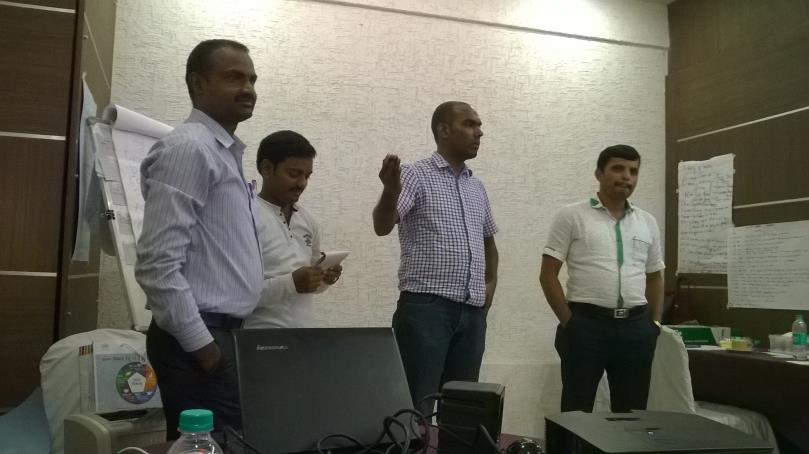| Date 15-May-2017 to 16-May-2017 |
Location Bengaluru, India |
Format National |
“I am now a more aware colleague and a man”
This was an observation by a participant at the end of the two day workshop PRIA conducted for 40 employees from the Karnataka regional team of American India Foundation (AIF). The workshop (in collaboration with Martha Farrell Foundation) was held on May 15-16, 2017 at Bengaluru.
The workshop aimed to sensitise the employees on gender norms and inequality in a patriarchal society; help them understand how gender inequality affects the workplace and often manifests in the form of sexual harassment at the workplace; and to build awareness about the Anti-Sexual Harassment Committee (ASH) of AIF and Sexual Harassment of Women at Workplace (Prevention, Prohibition and Redressal) Act, 2013.
Expectations and fears were expressed at the beginning of the two days. "Learning how to stop sexual harassment at the workplace," was an expectation, accompanied by a fear of "losing relationships" and discomfort about talking about personal lives and attitudes.
The initial Word Relay game, on listing words we commonly associate with the words "male" and "female", helped initiate a discussion on our deep-seated socialisation that affects how we think about and view males and females in society.
Participants filled in a gender history sheet, where they explained how at every stage of their lives (childhood, teenage, adulthood, post-marriage), they faced the pressure of confirming to gender roles. They presented their gender histories through role plays, poems, music and drawings. One group of women participants wrote and presented a poem on child sexual abuse. Another group made a drawing on how certain dresses, lifestyles, hairstyles, etc. are also gendered..jpg)
After understanding how gender inequality affects our families and personal lives, the workshop focused on how the same gender inequality manifests at our workplace, leading to sexual harassment at the workplace. The participants drew their workplaces to understand that any space (beyond the office space), which is directly or indirectly related to our work responsibilities or our work relationships, constitutes a workplace. After understanding what constitutes a workplace, the participants broke down the two words “harassment” and “sexual”, to understand what is included in "sexual harassment". Participants presented on what they should do if their colleague informs them about the sexual harassment he/she has been facing at the workplace. Participants were also able to question their prejudices and misconceptions related to sexual harassment at the workplace, understanding that this form of violence is an expression of power and not a result of someone’s dress, behaviour or lifestyle. Group discussions and presentations helped participants understand the various forms of redressal that are available to an employee who faces sexual harassment at the workplace.
“Change at a personal level before any other change,” said one participant. And everyone shared one practical change that they would like to bring in their everyday life, which will help them in altering unequal gendered power relationships.